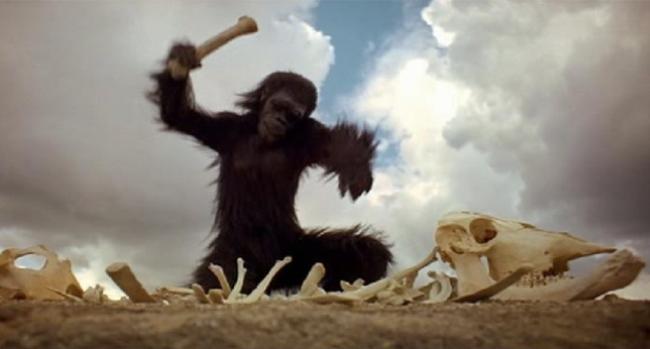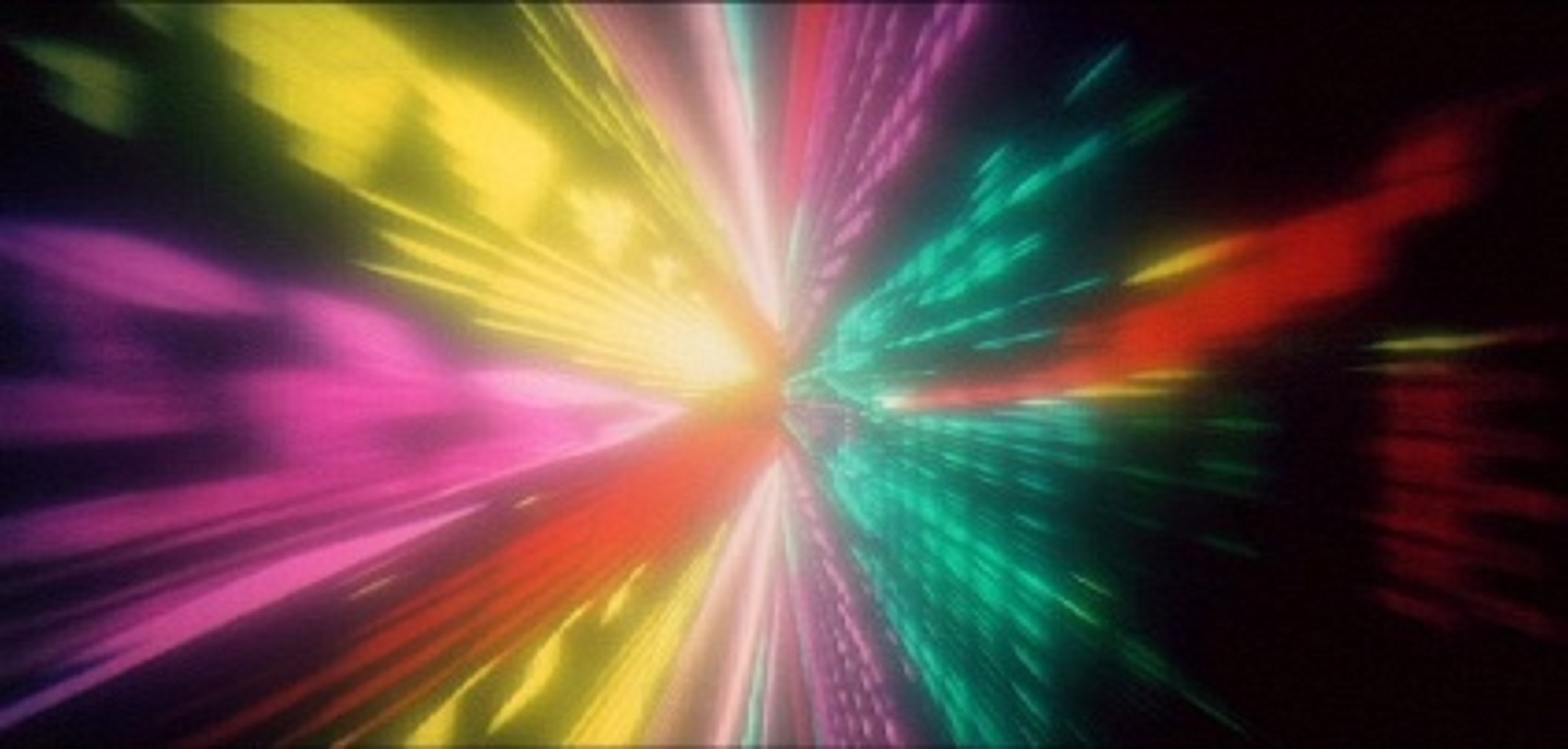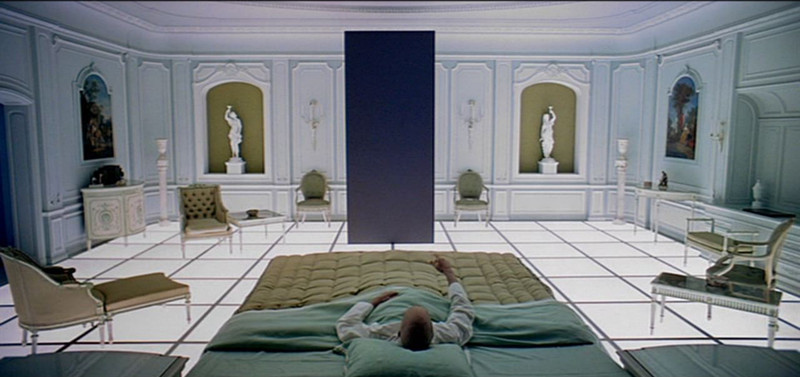6. Predictions of Modern Technology

Nowadays, technology is generally taken for granted and accepted as the norm in the Western world. Smartphones, laptops and tablets are all the product of great scientific advancements in the last decade or so, with the expansion of technology still seeming potentially infinite in the dynamic marketplace of the 21st Century.
However, preceding this vehement acceleration in the development of modern technology, speculation of future computers and machinery was universal; and no more so than in the Science Fiction genre. Blade Runner and Back to the Future hypothesised flying cars, whilst I, Robot and A.I Artificial Intelligence (to which Kubrick contributed to greatly in its development) predicted the eventual creation of mentally “conscious” machines – AI.
Despite the once fantasy concept of Artificial Intelligence now potentially becoming reality, flying cars are still considerably far away from becoming commercially and environmentally viable. This makes the predictions of modern technology in 2001 all the more impressive – both Blade Runner and Back to the Future were made in the 1980s, and were substantially more farfetched than anything found in Kubrick’s work.
Not only was the technology in 2001 startlingly accurate and realistic, but also heavily influential on what we see today – Samsung once even argued in a lawsuit that Apple’s iPad was in fact based upon the Visual Tablets used by Bowman and Poole on the Discovery One. The audio-visual call between Dr. Floyd and his daughter greatly resembles the facets of FaceTime, whilst the eerily monotone voice of the HAL 9000 computer could even be labelled as an early vision of Apple’s built-in helping hand, Siri.
Made in 1968, nearly 50 years ago now, Kubrick’s (and his teams) predictions of modern technology are simply astounding in their precision, clarity and progressiveness. No Science Fiction film, or any film for that matter, has ever matched 2001 in its veracity of the distant future; and it could be quite possible that no film ever will again.
7. Iconic Soundtrack and Use of Music

After working with Hollywood composer Alex North on his two previous features, Spartacus and Dr. Strangelove, Kubrick commissioned his regular colleague to create a score to match the visual immensity of his upcoming work, 2001. Boldly however, Kubrick removed North’s compositions in the post-production process, replacing them with the epic classical pieces that the feature is now perpetually associated with. North’s unused score is nevertheless a strong effort and deserves its own individual recognition, however it is hard to argue with Kubrick’s final choice – a soundtrack that equals, if not exceeds, the quality of the visual and thematic action of 2001.
Richard Strauss’ Also Sprach Zarathustra, inspired by Friedrich Nietzsche’s seminal work of the same name, opens Kubrick’s feature in an image of pure majesty; the sun rising over the Earth and Moon, showing us the vastness of space and the insignificance of ourselves in the blackness of the Universe. Paired with Strauss’ eternally iconic tone poem of double basses, organs and trumpets, the scene becomes not just a great sequence in its own right but also a fitting introduction to the tone and vision of the film. Contemplation, spectacle and absolute possibility; both Strauss and Kubrick sought to elicit these responses from their respective audiences, together creating one of the most iconic and epic opening scenes in Cinema history.
Paul Thomas Anderson, a great contemporary American filmmaker in his own right, said of Kubrick; “It’s so hard to do anything that doesn’t owe some kind of debt to what Stanley Kubrick did with music in movies. Inevitably, you’re going to end up doing something that he’s probably already done before”. Many have attempted to imitate or parody 2001, but few will ever truly live up to the utter immensity of Strauss’ transcendent symphony, or how effectively Kubrick put it to use in his vast tale of galactic exploration.
8. Limitless Interpretations

Being one of the most famous films in cinema history, 2001 has had more than its fair share of critical and professional analysis. It’s purposeful ambiguity and open ended conclusion has resulted in almost limitless interpretations about its conception, influences and true meaning.
The whole piece can be taken from several angles; philosophically, theologically, as an allegory, or even as a postulation on the process of evolution. Since the existential philosophical viewpoint has already been discussed in this article, only the religious and allegorical exegesis will be focused upon in this point. Saying this, all of the themes interweave into one larger commentary regardless of how much you attempt to separate them, and, of course, there is no right or wrong – Kubrick himself encouraged speculation, and refused to offer an explanation of “what really happened”.
Theologically, it can be proposed that the narrative of the film itself is in fact a search for God, or the scientific equivalent of him. The possible purpose of the unexplained Monoliths can be likened to the purpose of Earth’s Western monotheistic prophets such as Muhammad, Jesus and Abraham; to spread the word of God and help us learn of his existence and truths. The Monoliths aid both the apes and Dr. Floyd, and eventually, when Bowman has reached the final Monolith on the outskirts of Jupiter, help him transform into the “Starchild”, reaching a heavenly status as he finally learns the truth of a higher being.
Alternatively, it can be argued that Bowman himself becomes a God, with Kubrick telling the audience that there is in fact no monotheistic God, but rather only a scientific definition of a higher being, and that this being is the next step in evolution past ourselves.
In addition to these theological assumptions, the whole feature can be seen as an allegory of the process of conception. The apes, being the most primitive, are seen as the birth of the human race, whilst Dr. Floyd, Poole and Bowman are seen as the representations of everyday human life. The “time warp” scene in which Bowman rapidly ages with no explanation has been interpreted to represent the ageing and death of the human race, shown by the birth of a completely new species; the infinitely more advanced “Starchild”.
Whether these interpretations are wholly accurate or inaccurate is truly unimportant. The significance of these several inferences is that 2001 is not telling the audience anything, but rather making them think for themselves and form their own opinions on God, existence, and human purpose. Kubrick harnesses ambiguity to thrust the viewer into challenging thought, resulting in one of the most speculated upon moral and thematic messages of 20th century modern media artwork.
9. Legacy and Influence on Filmmakers and Cinema

Even the (very) few who do not recognise 2001 as a masterpiece of cinema cannot deny its legacy and influence on several generations of filmmakers. Two of the most popular directors of the 70s and 80s, Steven Spielberg and George Lucas, can be seen as having taken direct influence from 2001, both in its visuals and cinematic ambition.
Even further than this however, the ripples of the 2001 tidal wave can still be felt on modern cinema today, with established directors such as Paul Thomas Anderson and Christopher Nolan citing it as an inspiration towards their own works – Nolan’s Interstellar, especially, can be seen as harking back to Kubrick’s magnum opus.
2001, simply from a visual point of view, clearly had great impact on the Sci-Fi genre as whole. With its ground-breaking special effects,
Kubrick and Trumbull showed that nothing was impossible to film; even zero gravity action, rotating surfaces and psychedelic space trips. The use of small scale models to capture the immensity of space is mirrored by Lucas in his Star Wars trilogy, and several other filmmakers harnessed this technique before the modern development of CGI.
This aesthetic influence is perhaps not as relevant as it was previously, with the technological developments of the digital age making models and slit-scan photography techniques effectively obsolete. Despite this, the influence of 2001 on Sci-Fi cinema is still immeasurable – before blockbuster hits such as Alien and ET, very few Science Fiction films were taken seriously, making them commercially inviable. 2001 was the first “serious” Sci-Fi film to be successful in the brutal market-place of cinema, therefore effectively establishing the “Sci-Fi Blockbuster” genre and influencing cinema as a whole to a fathomless extent.
Spielberg once labelled 2001 as the “Big Bang” of his generation, and this may potentially be the most important facet of Kubrick’s influence canon. Regardless of visual, thematic or even commercial influence, what 2001 truly encourages all filmmakers to do is to pursue their cinematic vision at all costs, to think independently and, most importantly, use cinema as a medium for intelligent and progressive thought – an invaluable message that will influence filmmakers of any age, skill or circumstance.
10. Transcendent of the Sci-Fi Genre

If 2001 was forcefully categorised into a single film type or genre, the answer would almost definitely be Science Fiction. Containing many Sci-Fi tropes, 2001 certainly uses several motifs of the genre. Travelling millions of miles through space, various different types of spacecraft, astronauts floating through space without the restraints of gravity – all of these images are perpetually attached to Science Fiction cinema, and rightly so. Why then, despite employing a range of classical genre elements, does 2001 feel like so much more than just a Science Fiction film?
A possible explanation is the high-brow themes and ideologies that diverge themselves in 2001, which, in the vast majority of other Science Fiction features, are largely avoided. Perhaps with the exception of Blade Runner, no other Sci-Fi blockbuster can claim to address existentialism, theology and the condition of the human purpose to such a complex, intellectual and elaborate degree; very few films at all can declare as much philosophical consciousness as 2001.
Another potential reason for 2001’s transcendent feel could be its immense influence on the entirety of cinema. Outside of just the Science Fiction genre, Kubrick’s space epic encourages freedom and individuality in cinema, as well as the benefits of using the facet of ambiguity in both the narrative and themes of a feature. By rejecting the classical cinematic style of 1920s and 30s Hollywood, Kubrick pushed the boundaries of mainstream cinema further than any director before him with 2001, taking full advantage of the creative freedom he had been gifted to bend the rules of cinema to his will, becoming a master of his craft in the process.
A third and final explanation could be the astounding longevity that 2001 possesses. Next year will be the film’s 50th Anniversary, yet the themes it addresses, its visuals and its set designs are still stunningly contemporary.
As long as cinema remains progressive and forward-thinking as an art form, 2001 will always be alongside it, endorsing modernity and dynamic thinking in film. Similar to the vast black Monolith, 2001 will tower over cinema for the eternity of the medium, helping it to evolve and progress regardless of any external factor; it has become an absolute constant in film, and a building block upon which modern cinema has been built.
These reasons, as well as many more, are all contributors to the transcendent, epic and superlative quality of Kubrick’s 2001: A Space Odyssey. There is not one overwhelming factor that places the work higher than the rest of Science Fiction cinema, but rather, a whole host of combining factors that work simultaneously to create what is a philosophical on human existence, an ambiguous exploration of possibility, a ground-breaking achievement in Sci-Fi cinematic visuals, a hugely influential piece of artwork, a Nietzsche inspired existentialist commentary; all of these ideals, and much more. The beauty of 2001 is that it can truly be whatever you want it to be, regardless of anybody else’s interpretations or viewpoints. Stanley Kubrick, a genius on a par with Welles and Hitchcock, knew this:
“The very meaninglessness of life forces man to create his own meaning.” – Stanley Kubrick, 1968